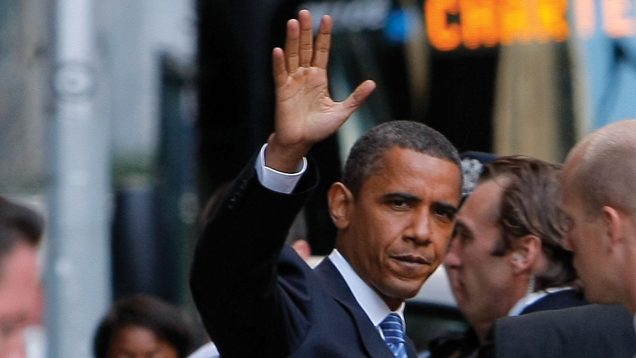The Obama effect
 CREDIT: JEMAL COUNTESS / GETTY IMAGES ENTERTAINMENT / THINKSTOCK
CREDIT: JEMAL COUNTESS / GETTY IMAGES ENTERTAINMENT / THINKSTOCKSimilar to US President, Barack Obama, Prime Minister-designate Justin Trudeau has promised progressive change for Canada. Now lets hope that Trudeau doesn't suffer the Obama effect.
When you woke up on Oct. 20 you probably noticed that colours were just a little more vivid, the air smelled better and your morning coffee was even more tasty than usual.
Tangible change from a newly elected government can be elusive, if not altogether absent. After promising positive change in virtually every facet of government, Prime Minister-designate Justin Trudeau has the phenomena of the Obama effect to deal with.
Previously alienated communities rose up to elect a leader whom they perceived to be capable of effecting swift and drastic change.
In Obama’s case, it didn’t take long for those community members to shift from hope to frustration, as campaign promises got bogged down in red tape.
From what he’s done since becoming Prime Minister-designate, it would appear that Trudeau plans to make good on as many campaign promises as possible. What separates him from soon-to-be former Prime Minister Stephen Harper is his platform, which is packed with tangible goals. Legalizing marijuana, instituting a new electoral system and transitioning into a support role in the war against ISIL are just a few of the campaign promises with the potential to create actual change.
And Trudeau is off to a good start. Almost two weeks before he officially takes office, he informed President Obama that Canada will cease bombing runs against ISIL overseas.
Just prior to the election, comedian and Canadian treasure Rick Mercer had a rant about how nation building has fallen by the wayside. Regardless of your opinion of Harper’s legacy, balancing a budget is one of the least memorable achievements for a Prime Minister.
Pierre Trudeau is still renowned for his work that led to the formulation of a Canadian constitution, and it seems that Trudeau is determined to create a legacy of his own. If he succeeds in adopting a more representational electoral system, it will go down as one of the most progressive government decisions since same sex marriage was legalized in 2005.
CTV News had the opportunity to interview Trudeau shortly after his victory. The result was a candid conversation in which the Prime Minister-designate spoke frankly about the challenges ahead, and his plans for legislative change.
One key excerpt spoke volumes about what set the Liberal platform apart when compared with the NDP.
“We put that platform together not because we thought it would help us get elected, but because we knew that these were things that Canada needed to do to succeed as a country.”
There are certainly aspects of the Liberal plan that pander to individual groups, but they fall into part of a broader strategy for bringing Canada to the forefront of the international community in terms of average quality of life.
It’s certainly too early to start declaring that Trudeau is a champion for change and social justice, but the framework is there for him to take advantage of. Where Harper cited his commitment to the economy as justification for his lack of action on many issues of public interest, the people have given Trudeau a mandate to take that action.
Editorial opinions or comments expressed in this online edition of Interrobang newspaper reflect the views of the writer and are not those of the Interrobang or the Fanshawe Student Union. The Interrobang is published weekly by the Fanshawe Student Union at 1001 Fanshawe College Blvd., P.O. Box 7005, London, Ontario, N5Y 5R6 and distributed through the Fanshawe College community. Letters to the editor are welcome. All letters are subject to editing and should be emailed. All letters must be accompanied by contact information. Letters can also be submitted online by clicking here.














